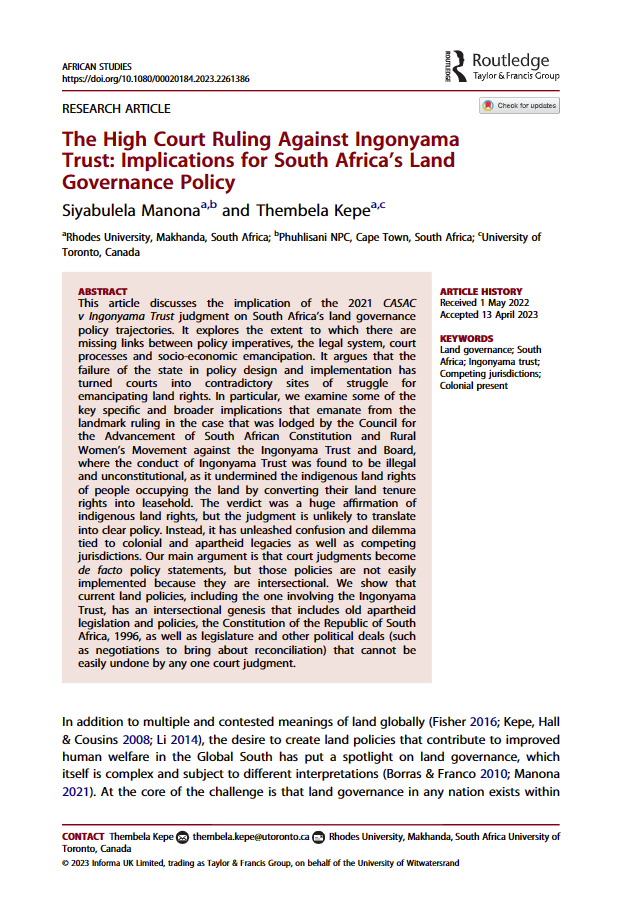Resource information
This article discusses the implication of the 2021 CASAC v Ingonyama Trust judgment on South Africa’s land governance policy trajectories. It explores the extent to which there are missing links between policy imperatives, the legal system, court processes and socio-economic emancipation. It argues that the failure of the state in policy design and implementation has turned courts into contradictory sites of struggle for emancipating land rights. In particular, we examine some of the key specific and broader implications that emanate from the landmark ruling in the case that was lodged by the Council for the Advancement of South African Constitution and Rural Women’s Movement against the Ingonyama Trust and Board, where the conduct of Ingonyama Trust was found to be illegal and unconstitutional, as it undermined the indigenous land rights of people occupying the land by converting their land tenure rights into leasehold. The verdict was a huge affirmation of indigenous land rights, but the judgment is unlikely to translate into clear policy. Instead, it has unleashed confusion and dilemma tied to colonial and apartheid legacies as well as competing jurisdictions. Our main argument is that court judgments become de facto policy statements, but those policies are not easily implemented because they are intersectional. We show that current land policies, including the one involving the Ingonyama Trust, has an intersectional genesis that includes old apartheid legislation and policies, the Constitution of the Republic of South Africa, 1996, as well as legislature and other political deals (such as negotiations to bring about reconciliation) that cannot be easily undone by any one court judgment.


